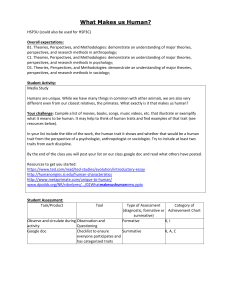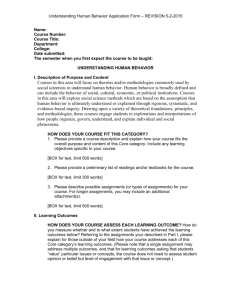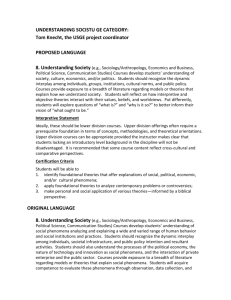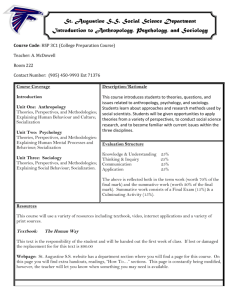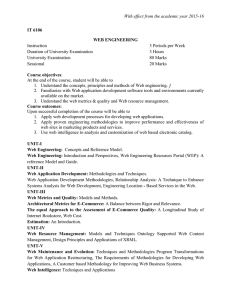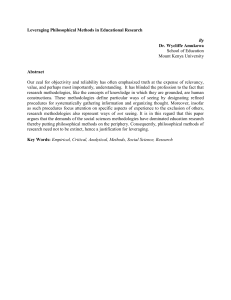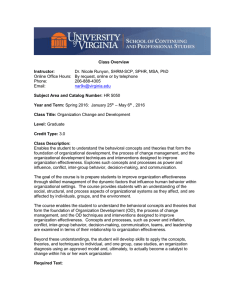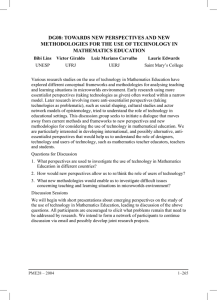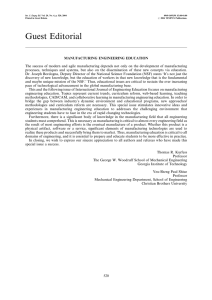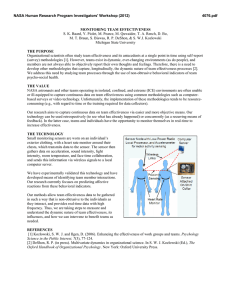PE-H Human Behavior
advertisement
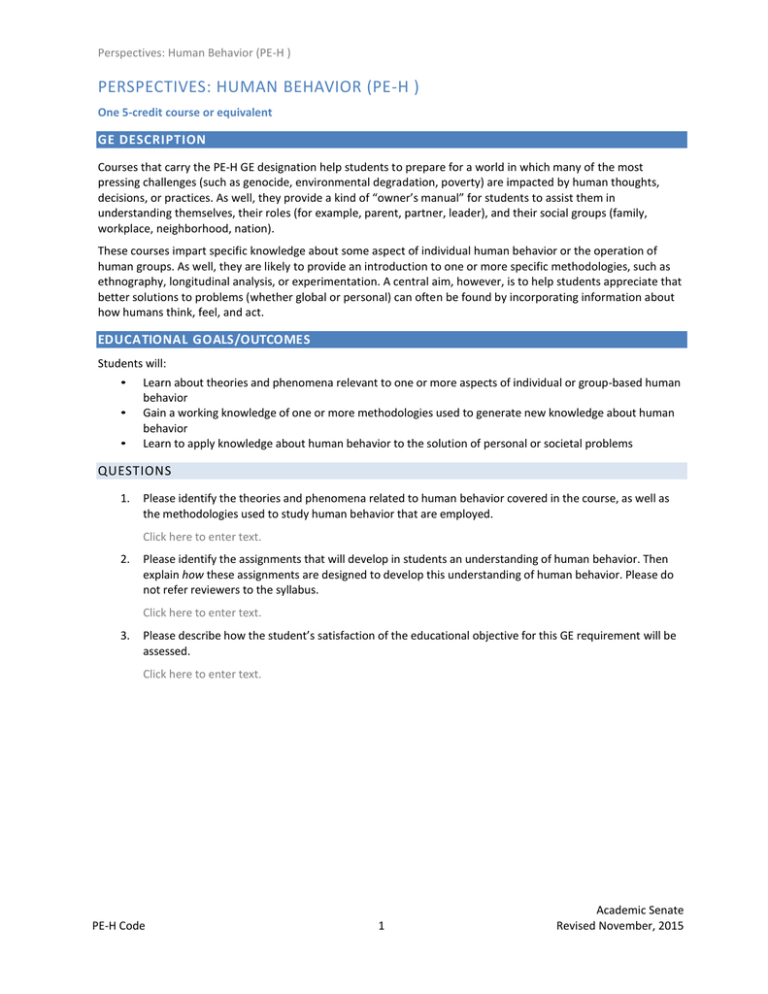
Perspectives: Human Behavior (PE-H ) PERSPECTIVES: HUMAN BEHAVIOR (PE-H ) One 5-credit course or equivalent GE DESCRIPTION Courses that carry the PE-H GE designation help students to prepare for a world in which many of the most pressing challenges (such as genocide, environmental degradation, poverty) are impacted by human thoughts, decisions, or practices. As well, they provide a kind of “owner’s manual” for students to assist them in understanding themselves, their roles (for example, parent, partner, leader), and their social groups (family, workplace, neighborhood, nation). These courses impart specific knowledge about some aspect of individual human behavior or the operation of human groups. As well, they are likely to provide an introduction to one or more specific methodologies, such as ethnography, longitudinal analysis, or experimentation. A central aim, however, is to help students appreciate that better solutions to problems (whether global or personal) can often be found by incorporating information about how humans think, feel, and act. EDUCATIONAL GOALS/OUTCOMES Students will: • • • Learn about theories and phenomena relevant to one or more aspects of individual or group-based human behavior Gain a working knowledge of one or more methodologies used to generate new knowledge about human behavior Learn to apply knowledge about human behavior to the solution of personal or societal problems QUESTIONS 1. Please identify the theories and phenomena related to human behavior covered in the course, as well as the methodologies used to study human behavior that are employed. Click here to enter text. 2. Please identify the assignments that will develop in students an understanding of human behavior. Then explain how these assignments are designed to develop this understanding of human behavior. Please do not refer reviewers to the syllabus. Click here to enter text. 3. Please describe how the student’s satisfaction of the educational objective for this GE requirement will be assessed. Click here to enter text. PE-H Code 1 Academic Senate Revised November, 2015

